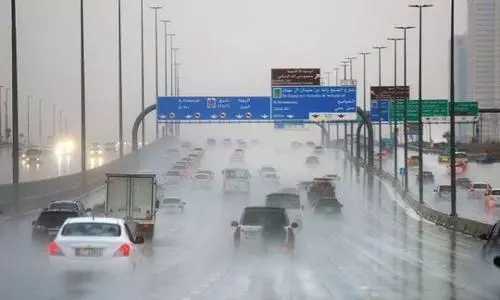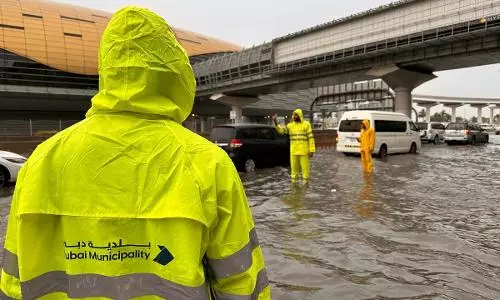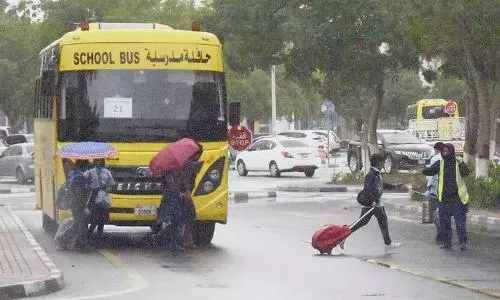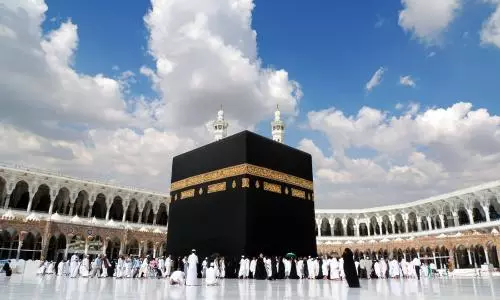
Maldives poll results crucial for India
text_fieldsThe victory of Ibrahim Mohammed Solih, the leader of Opposition alliance, in the elections of Maldives, the strategically located island nation in the Indian Ocean, should brighten India's hopes.
In a political atmosphere in which the UN Security Council and European Union refused to send observers and predicted widespread poll fraud, and UN and US threatened of punitive action including embargo, the victory of Ibrahim Solih with 58 per cent votes has surprised most. Abdulla Yameen, who enjoyed the backing of China, had ordered the election after toppling democratic practices, declaring emergency, massive arrest of opponents and even putting supreme court judges behind bars with military help. In such a charged atmosphere, no one had expected a result to the contrary. Strategic brains and international statesmen had been weighing the different diplomatic options to be adopted by India in the eventuality of the continuation of the regime of Yameen, fond of working with China for increasing influence in the islands. It is in such a situation that the Opposition has come out with a shining victory.
It is only ten years since Madives opened its door to democracy ending the three-decade old autocracy of Maumoon Abdul Gayoom. Gayoom was forced to step down and pave way for multi-party election for the post of president in 2008, when the popular agitation against the anti-democratic order of government that lasted five years intensified under the leadership of Maldivian Democratic Party leader Mohammed Nasheed. With Nasheed defeating Gayoom in the election of 2008, and becoming president in 2010, Maldives found a place in the list of democratic countries of the world. However, the real experience of Maldives, which had to face elections thrice in ten years, is that even those who came to power through the ballot could not stay clear of the inherited malady of autocracy. Those who put their money on democracy soon came to realize that it would be a hurdle for maintaining power. Nasheed, who came to the scene against Gayoom, took retaliatory action against his political adversaries and officials who fell out of his good books. Thus on losing public support, Nasheed was compelled to leave office in February 2012 and the country's rule again fell into the hands of Gayoom's Progressive party of Maldives (PPM) and his half-brother Yameen.
PPM, which took China and Saudi Arabia as trusted friends, won the election by taking along in the alliance Jumhoori Party and the religious grouping Adalat Party. However, Abdulla Yameen, who had won power through the ballot raising the three-point slogan of democracy, rule of law and development, tried to bring the judiciary - which had been functioning with reasonable neutrality - under his control. To this end, he brought in new legislation using the majority in parliament. Gradually, Yameen put behind bars several including former President Nasheed, his own vice President Ahmed Adeeb, the leader of coalition partner Adlat Party Imran Abdulla, and the country's richest man Qasim Ibrahim. Through such acts, Yameen re- incarnated himself as the strongest dictator of Maldives. Laws were re-written repeatedly to serve the regime's interests. Thus after making internal control secure and on the external front winning the full support of China, Yameen's move for elections was seen as to put an ornamental crest democracy over dictatorship. It was when Yameen, and with him even his opponents, were waiting for his walkover victory, that the news of his defeat came. When Nasheed's party returns to power again with the victory of the Opposition, and going by the previous experience of Maldives, it is difficult to say that the country will be redeemed. But if Ibrahim Solih is able to recognize his party's mistake in the first round and protect democratic rights, this strategic island can come out of political anarchy.
Thanks to Maldives' strategically important location in the Indian Ocean, the political happenings of the country are crucial for India too. China, which has been trying hard for supremacy in the region, will continue to keep the country under its influence. And there are others who have an eye on Maldives on the pretext of security of the Indian Ocean region, i.e. America, European Union, Japan and Australia. Therefore, India too has to play its cards with discretion, especial ly when China makes moves on the strength of having won influence over Pakistan, Bangladesh, Sri Lanka and Nepal. The fact is that the one-man struggle conducted by India in foreign policy is not getting anywhere. India has but to take the initiative for new strategic moves using multi-party relations and international leanings with a grasp of the changing equations of the Indian Ocean region. The alliance coming to power in Maldives is one with an affinity to India. The question whether Modi government can capitalize on this favourable situation, is decisive for the security of the region of India.























